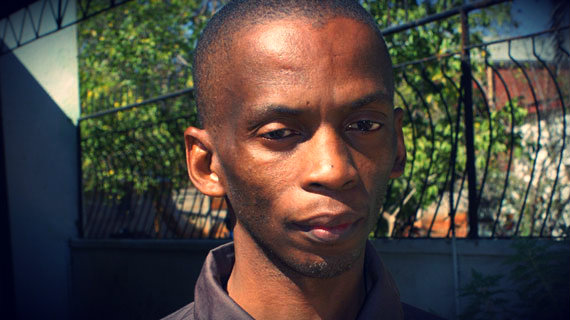
RECENT events in the country’s major opposition party, the MDC-T are a cause for concern. Unless the MDC–T tackles the root cause of the crisis recruiting members like Job Sikhala from rival formations is tantamount to pouring water inside a leaking bucket.
There is something seriously wrong in the leadership and governance culture of the party and unless this is dealt with openly and maturely the MDC–T risks political extinction in the 2018 polls.
Morgan Tsvangirai is increasingly becoming a liability both to his party and to the struggle for democracy in Zimbabwe.
If the truth be told, the man has done a lot of good for the country exhibiting great courage and consistency, but he has and is becoming the “Achilles heel” of the struggle for democratisation and Zimbabwe needs new leaders who can take the next phase of the struggle to higher levels.
Quite clearly Tsvangirai is willing to lead the people to the promised land, but quite clearly again he is unable to do so due to reasons embedded in his leadership style and deficit in political craft competence.
Tsvangirai has scaled great political heights leading the Zimbabwe Congress of Trade Union in historic stayaways and defeating Robert Mugabe for the first time in the history of Zimbabwe in March 2008.
Like a Shakespearean tragic figure, he has been also floored by tragic flaws in his character and leadership style which resulted in the original 2005 split in the MDC.
When the party hierarchy resolved to participate in the Senate elections, Tsvangirai opposed them single-handedly (in variation with constitutional principles).
- Chamisa under fire over US$120K donation
- Mavhunga puts DeMbare into Chibuku quarterfinals
- Pension funds bet on Cabora Bassa oilfields
- Councils defy govt fire tender directive
Keep Reading
He then outsmarted his opponents including Welshman Ncube by quickly reaching out to the grassroots of the party and isolating the top leadership of the party from the rank and file of the party.
This is a strategy which he is using with modest effect in the ongoing wrangle with Tendai Biti and Elton Mangoma.
After realising his political life was in danger, he quickly by-passed provincial structures of the party and reached out to the district chairpersons and then rapidly purged his opponents in the provincial structures.
He than moved swiftly to conduct countrywide rallies to isolate those pushing for leadership change.
I have no doubt that this strategy may work in the short term within his party and he is likely to be retained as president, but his credentials as “the face of the democratic struggle” have been and will be even more severely eroded.
He thus stands a good chance of winning in his party’s congress whenever it is held, but his chances of winning in 2018 are next to nil even if Zanu PF does not rig the elections.
Those who support Tsvangirai have argued that he is a brand and nobody else in opposition politics has the kind of grassroots support he has. Others argue that he is the “face of the struggle for democracy” and as such everyone needs to rally around him.
While it is true that Tsvangirai is and has been a brand, we need to understand that brand loyalty is subject to other factors both intrinsic and extrinsic. Brand loyalty is a function of brand credibility which is a function of brand performance, consistency and quality.
Highlanders Football Club or Dynamos FC are the most popular brands in the country. If, however, as has happened in the past, Bosso does not perform well in the football pitch this impacts on brand loyalty in as far marketing of the brand is concerned.
While somebody would continue being a Highlanders or Dynamos supporter in the comfort off discomfort of their home, they would undoubtedly frequent the stadiums less and buy less club merchandise.
Similarly, if worms were to be found consistently in Coca-Cola bottles, this would eventually impact on brand loyalty for the Coca-Cola brand. This is the case with Tsvangirai. He has to understand that brands are made, but brands can also be destroyed.
Three elections afterwards people are asking themselves: Is this brand worthwhile?
Eventually people will lose confidence in the Tsvangirai brand and choose other emerging brands because brand loyalty is also subject to market conditions such as competitions, product dynamism, quality of service, external threats and adaptability to hostile audiences or markets and so on.
Zanu PF itself is metamorphosing and has changed its strategies and approach to politics, but Tsvangirai is rooted in the same mantra of “Mugabe must go” 14 years later.
Surely we need a new message and a new messenger with a viable, alternative to offer because the MDC-T is rapidly becoming like Zanu PF in the way it is dealing with divergent views and the spectre of violence which has been growing since the 2005 split.
The MDC–T in its current form is a replica of Zanu PF the only difference being that Mugabe appears to be able to hold his party together by fair or foul means while Tsvangirai is hopelessly clueless on how to unite his party and importantly move it forward.
There is too much Zanu PF like sloganeering, bootlicking and intolerance within the MDC–T and even If Ncube or Dumiso Dabengwa were to join Tsvangirai, the fundamental structural and internal governance, leadership issues would still be a challenge.
What is needed is an alternative united front as I argued over a month ago consisting of the MDC-T, MDC, NCA and Zapu as well as a host of progressive leaders, strategists, thinkers and activists who may not necessarily belong to any of the current political leaders.
Tsvangirai has had his chance, but has clearly demonstrated his strategic incompetencies. It’s time for change! Dumisani Nkomo is a political commentator and chief executive officer of the Habakkuk Trust. He writes in his personal capacity










